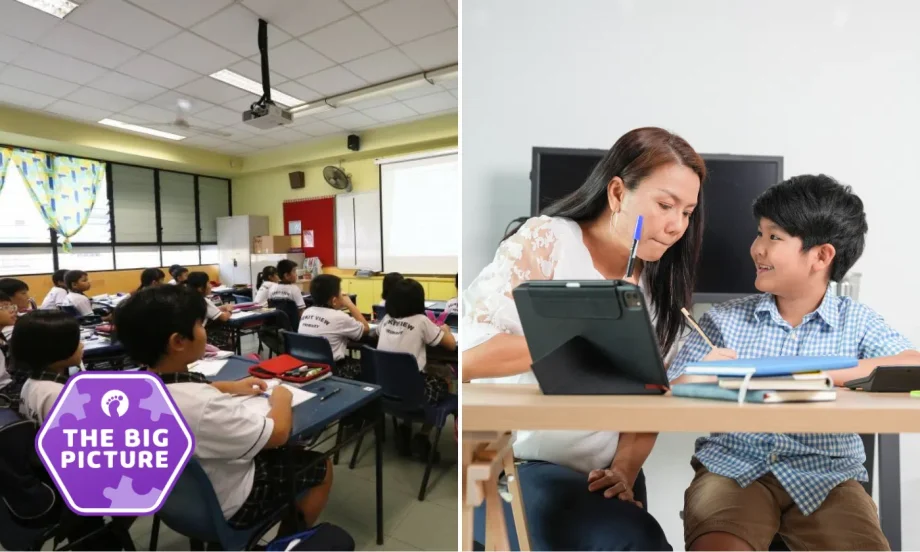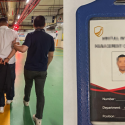Some Singapore parents are ditching tuition and the rat race — homeschooling their kids, moving overseas, and putting well-being before grades. But is stepping away from exams really a choice — or a luxury?
In Singapore, success has long been framed through meritocracy: work hard, study hard, and you’ll go far.
But that ideal, often tied to ethnic equality, is increasingly criticised as “elitist,” according to Singapore’s Evolving Meritocracy, a publication by the Lee Kuan Yew School of Public Policy.
With growing emphasis on holistic development, more families are exploring alternative education pathways such as homeschooling.
In October, The Straits Times reported on the Liang family, who left Singapore’s education “arms race” to settle in Thailand. Their two daughters are homeschooled under the International General Certificate of Secondary Education (IGCSE) syllabus, with one earning an Outstanding Cambridge Learner Award after a perfect score in mathematics.
The family’s story struck a chord with Singaporeans. Many praised them for prioritising well-being over grades, while others questioned whether it’s possible to fully step away from Singapore’s competitive culture — and the deeply ingrained meritocratic ethos that underpins it.
It also raises a bigger question: is the ability to prioritise a child’s holistic development over the local academic pressure cooker, in itself, a form of privilege?
Prioritising children’s emotional well-being ‘a form of privilege’
Speaking to Stomp, a stay-at-home mother who wished to be known only as Ms Chew, said she quit her full-time entrepreneur job to homeschool her two children, aged five and three.
Believing that childhood is fleeting, the 38-year-old pulled her children out of a local preschool this year to let them “explore the world around them”.
She emphasised that the ages zero to six are important to build that foundation of attachment with the parent. Spending five days a week in school, she noted, meant parents only saw their children at dinner and bedtime.
Ms Chew also acknowledged that being able to quit her job to care for her children, while her partner remained the sole breadwinner, is a “luxury that not many people have because a lot of families require double income”.
She said some friends have managed to scale down — by “downsizing or living a bit more simply” — to make do on a single income. She also noted that homeschooling “actually doesn’t cost us much. It cost me my career, but we save about $70,000 a year”.
Based on searches of private preschool websites, Stomp estimates that tuition in Singapore typically ranges from $1,200 to $2,500 per month per child, excluding enrichment classes, materials, and transport.
Ms Chew said her decision to homeschool her children was driven by a desire to prioritise her children’s holistic development and emotional well-being.
She acknowledged that this, too, is “a form of privilege”, noting that for families from less fortunate backgrounds, “following the standard path is all they can bank on” — one that is “safe, measurable, and does provide some form of success”.
Ms Chew still plans to give her children a variety of learning experiences, sharing that they will enrol in a local primary school when they turn seven. She also pointed out that there are “benefits to learning in a more structured environment”.
Ultimately, she believes that people should “run their own race”, adding that Singapore is not a “perfect society” — there will always be people who have more than others. “And that’s fine”, said Ms Chew.
‘As long as she’s happy’
Francesca, a TikToker and stay-at-home mother, enrolled her 6-year-old daughter, Eve, into the Singapore American School (SAS), believing that Eve’s “little rebel” personality would thrive there.
Having tried a local preschool over a summer, Francesca said that it was not a good fit, as the staff there were “very strict with the kids”.
“We will shoot ourselves in the foot financially for her,” she told Stomp, acknowledging the hefty cost of international schooling in Singapore.
According to publicly available international school websites, fees range from $30,000 to $60,000 per year, depending on grade and school, not including uniforms, transport, and materials.
The family, however, plans to move back to Indonesia — where she is from — as living in Singapore is too expensive.






